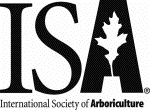
| Current Articles |
| Browse Archives |
| Search |
| Contact Us |
| AUF Home |
 |
Arboriculture & Urban Forestry Online
| Volume 27, Issue 4 —
July 2001
https://www.isa-arbor.com/Publications/Arboriculture-Urban-Forestry |
|
Induction of Systemic Acquired Disease Resistance in Plants: Potential Implications for Disease Management in Urban Forestry (View PDF) Glynn C. Percival Abstract: Systemic acquired resistance (SAR) is the phenomenon whereby a plant's own defense mechanisms are induced by prior treatment with either a biological or chemical agent. The concept of SAR has been widely recognized and studied for the past 100 years in relation to increasing resistance to fungal, bacterial, and viral pathogens of economically important crop plants. The use of SAR as part of a disease management strategy in relation to urban forestry has received little scientific investigation despite offering some potential for tree pathogen control. The objectives of this paper are to discuss the concepts of SAR and, where applicable, indicate how SAR may be incorporated into a disease management system by urban foresters. Areas discussed include historical background, persistence of SAR, mechanisms of SAR, induction of SAR by biological organisms and chemicals, interplanting with flowering woody plants to promote an SAR response, and SAR in woody plants. Keywords: Induced resistance; integrated disease management; disease control; plant-pathogen interactions; fungicides; systemic acquired resistance; SAR; salicylic acid; isonicotinic acid; plant activator. |
Current Articles
| Browse Archives | Search | AUF Home | ISA Home
| Get Acrobat